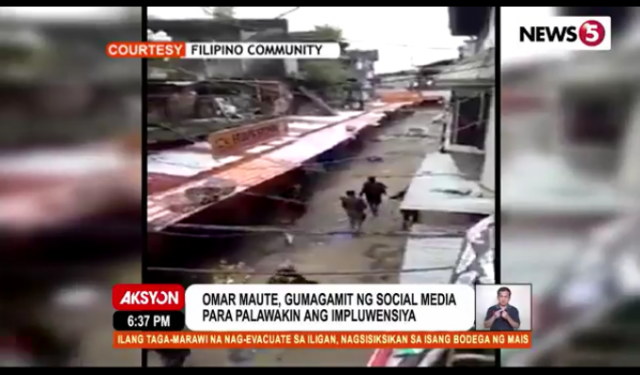
MANILA – In an October 2016 report, a regional security expert, Sidney Jones, ranked the Maute Group as the most social-media savvy of the terrorists, attributing the group’s wide influence to the leader, Omar Maute’s wise use of the platform.
In an interview, the Philippine Army 6th Infantry Division spokesperson, Capt. Joanna Petinglay, said: “They are using social media to project an image of them being a sizeable force, but if you scrutinize the videos that they share, you’ll see that they do not look that substantial.”
According to a media critic, Vergel O. Santos, who chairs the board at Center for Media Freedom and Responsibility (CMFR), it is not difficult to spread ideology on social media because of its accessibility and ease of concealment: “Cyberspace is perfect for any clandestine operation because you can operate faceless and nameless. In fact it lends itself very well to that kind of operation. More than anything, it has become a jumping off point for clandestine offensives.”
Rodolfo Mendoza, president of Philippine Institute for Peace, Violence and Terrorism Research, said the Maute Groups astuteness is a hand-me-down from the social media strategy of contemporary groups such as ISIS – Islamic State of Iraq and Syria, also known otherwise as ISIL.
“Their social media strategy is intended to expand their ranks, to swell their membership base. It is actually an effective propaganda tool for recruitment.”
He observed that it would be essential for the government to hone up on its online counter-terrorism capability in the face of the potential expansion of the internet-based strategy of local terrorist groups. They could, for instance, leapfrog from engaging in recruitment to undertaking hacking operations.
Click and watch this video report below:









